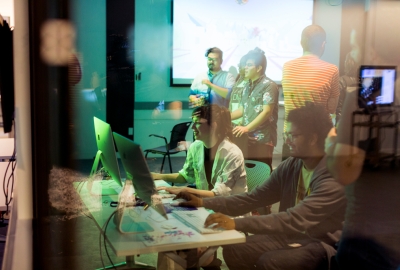This course explores how forms of media and popular culture have historically constructed a sense of realism, authenticity, or access to direct experience through various technologies, production, marketing, programming, performance techniques and promotion practices. It will survey the history of hoaxes, spectacles, photography, documentary, news, robotics, video games, virtual reality, reality television, and social media in order to trace the history and analyze the repercussions of the ethics, aesthetics and business of "the real".
Course #
MCC-GE 2501
Credits
4
Department
Media, Culture, and Communication


